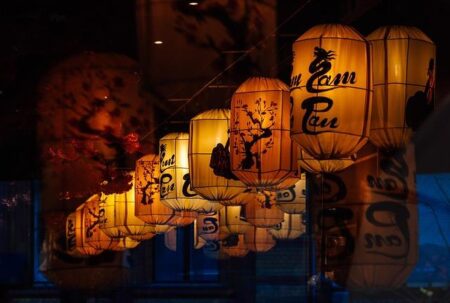Spain is rapidly emerging as a top choice for high-value travelers, attracting affluent tourists who prioritize short yet lucrative stays centered around business, culture, and gastronomy. According to recent industry reports, the country’s rich heritage, vibrant culinary scene, and expanding business hubs are drawing a growing number of wealthy visitors eager to combine professional engagements with premium leisure experiences. This trend positions Spain not only as a favored vacation spot but also as a strategic destination for luxury tourism that delivers significant economic benefits.
Spain Attracts Wealthy Tourists Prioritizing Exclusive Business and Cultural Experiences
Spain has rapidly emerged as a magnet for affluent travelers who seek to blend high-impact business engagements with rich cultural immersion. These discerning visitors prioritize bespoke experiences that allow them to optimize their brief stays without compromising on luxury or authenticity. From exclusive networking events held in iconic heritage sites to private culinary tours featuring Michelin-starred chefs, every moment is tailored to deliver an exceptional blend of productivity and pleasure.
To cater to this elite segment, Spain offers a diverse portfolio of premium services and attractions such as:
- Private art gallery viewings showcasing both classical and contemporary masterpieces
- Customized flamenco performances in intimate venues
- Luxury yacht charters along the Mediterranean coast combined with gourmet dining
- Exclusive wine tastings in renowned Rioja and Priorat vineyards
| Experience | Duration | Average Spend (€) |
|---|---|---|
| Private Business Summit | 2 days | €18,000 |
| Culinary Masterclass & Tasting | 4 hours | €3,500 |
| Art & Culture VIP Tour | 6 hours | €5,000 |
| Luxury Yacht & Gourmet Lunch | 1 day | €12,000 |
Gastronomic Excellence Drives High-Spending Short Visits Among Affluent Travelers
The allure of Spain’s culinary scene has become a significant magnet for affluent visitors who prefer brief yet lavish stays. These high-net-worth travelers are drawn by the country’s ability to marry traditional flavors with innovative gastronomic experiences, often centered around Michelin-starred restaurants and exclusive food tours. The demand for curated tastings of regional delicacies, such as JamĂłn IbĂ©rico, artisanal wines from La Rioja, and avant-garde Catalan cuisine, contributes substantially to elevated per-visitor spending. This gastronomic excellence not only satisfies sophisticated palates but also enhances the overall appeal of Spain as a luxury destination where every meal becomes an event.
Key features driving this trend include:
- Private dining experiences with renowned chefs
- Exclusive access to local food markets and wineries
- Short, high-impact itineraries combining culture and culinary tastings
- Focus on small boutique hotels with gastronomic packages
| Experience | Average Spend (€) | Visit Duration (days) |
|---|---|---|
| Gastronomic Tour | 1,200 | 3 |
| Business & Dining | 1,500 | 2 |
| Cultural & Culinary Combo | 1,350 | 4 |
Strategic Recommendations for Capitalizing on Spain’s Rising Luxury Tourism Market
To harness the potential of Spain’s burgeoning luxury tourism sector, businesses and local governments should prioritize personalized and exclusive experiences that resonate with affluent visitors’ desires. Curating bespoke packages that blend premium business services with cultural immersion and gourmet highlights will elevate the guest experience. Collaborations between luxury hotels, Michelin-starred restaurants, and renowned cultural institutions can create seamless itineraries that cater to short stays but high-spending tourists. Additionally, embracing digital concierge tools and high-end transport options, including private jets and chauffeur services, will further enhance convenience and exclusivity.
Investment in infrastructure and targeted marketing campaigns aimed at key high-net-worth regions, such as the Middle East, China, and North America, can solidify Spain’s reputation as a top-tier luxury travel destination. Leveraging data analytics to understand visitor patterns and spending habits allows for more effective segmentation and offers. Below is a concise overview of strategic focus areas for stakeholders:
| Strategic Focus | Action Items | Expected Outcome |
|---|---|---|
| Exclusive Partnerships | Align top hotels with luxury brands and cultural icons | Unique immersive experiences |
| Targeted Marketing | Campaigns in high-affluence markets via luxury magazines and influencers | Increased brand visibility |
| Technology Integration | Deploy AI-driven personalization and premium booking platforms | Enhanced customer satisfaction |
| Transport & Accessibility | Expand luxury transfer options and improve airport lounges | Smooth and high-end traveler journey |
Wrapping Up
As Spain continues to attract a growing number of affluent travelers drawn by its rich cultural heritage, vibrant gastronomy, and dynamic business environment, the country is solidifying its position as a premier destination for high-value, short-stay tourism. Industry experts anticipate that this trend will not only boost local economies but also drive innovation in luxury travel offerings, catering to the evolving preferences of discerning visitors. With its unique blend of tradition and modernity, Spain is poised to remain at the forefront of global travel markets seeking quality over quantity in their travel experiences.




